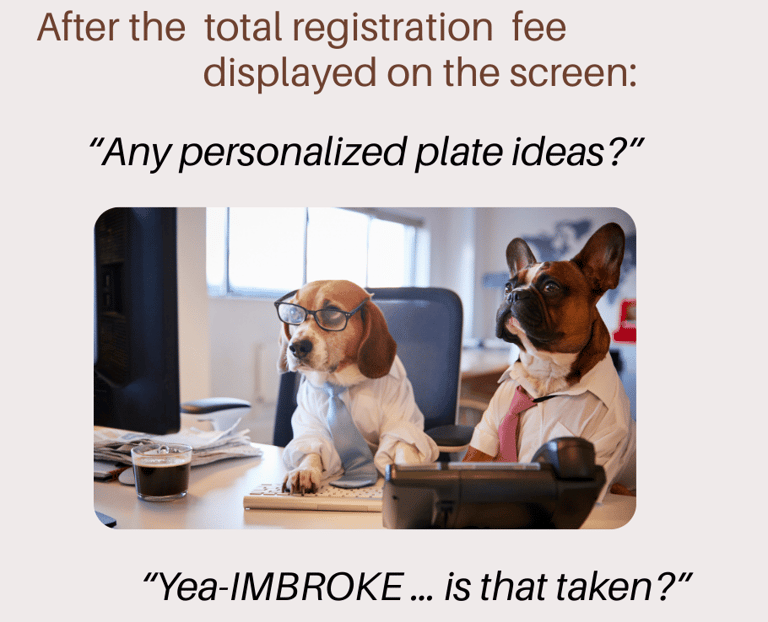State DMV Fees After Buying a Car: Title, Registration, Plates


The “Other” Car-Buying Costs: Registration & Paperwork Fees
You’ve picked your financing (bank/credit union or dealership). Great. Now the not-so-fun bit at the Department of Motor Vehicles (DMV): government fees. These aren’t dealer profit add-ons — they’re the prices of putting a legal, drivable car in your name. Here’s what usually appears and what each one means.
Title
One-time charge to record legal ownership in your name. If you’re financing, the lender is listed as lienholder. Some states charge extra for a paper title vs. an electronic title.
Registration
The permission slip to drive on public roads. Paid annually or every two years depending on the state. The amount can be flat, based on weight, age, or vehicle value.
Plate
Covers issuing metal plates and the registration stickers. Standard plates are cheapest; specialty or personalized plates add more. Some states charge a small “plate transfer” fee if you bring plates from your old car.
EV / Program (if applicable)
Many states add an annual EV or alternative-fuel surcharge to replace fuel-tax revenue. Other statewide “program” fees (road/bridge, highway safety) may ride along here.
New Plate / Initial
If this is the first time the vehicle is being registered to you in that state (new purchase, out-of-state move), expect an initial or first-time registration/plate issuance fee.
Inspection / Emissions
Where required, you’ll pay for a safety and/or emissions inspection at an approved station, plus a small state recording/certificate fee. Some areas are inspection-exempt; others require it every year or two.
Local / County
Counties and cities can add a “wheel tax,” road/bridge fee, or metro area fee on top of the state registration. These are small individually but add up.
Quick sanity check: what’s not a government fee
Dealers often add doc (documentation) fees, delivery/prep, and add-ons (VIN etching, nitrogen, paint protection). Those are dealer charges and can be negotiated or declined. The items above (title, registration, plate, etc.) go to your state or local government.
Timing tips (common patterns)
Insurance first. Most states require active insurance before registration.
Deadline window. You typically have 7–30 days after purchase or move-in to register before late penalties.
Inspections. If your state/county needs one, book it before your DMV visit or online renewal.
Official Links Directory (drop your state list here)
Find your state motor-vehicle office (DMV index):
https://www.usa.gov/motor-vehicle-servicesCheck open safety recalls (NHTSA):
https://www.nhtsa.gov/recalls
Or just enter you state in the box below:
Bottom line
Bank vs. dealer financing affects your loan; the items above affect your legal right to drive. Plan a little buffer for government fees, check your state’s requirements in the directory, and you’ll avoid the last-minute “why is my out-the-door price higher?” surprise.
